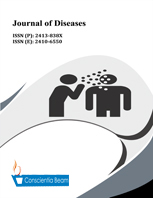Key Breeding Containers of Dengue Vectors in Outbreak Localities in Federal Territory of Kuala Lumpur
DOI:
https://doi.org/10.18488/journal.99.2021.81.1.8Abstract
Dengue is a mosquito-borne disease that rapidly spreads throughout tropical and subtropical regions. An estimated 2.5 billion people live in dengue-endemic countries and millions of cases occurring each year. Identifying key breeding containers are important to prevent dengue epidemics. This study aims to identify key breeding containers and to evaluate the risks of dengue transmission in the dengue outbreak localities in Kepong District, Kuala Lumpur. Entomological surveillance was done between January 2016 to December 2017 in 38 different outbreak localities. Both indoors and outdoors water-holding containers were inspected for the presence of mosquito larvae. All collected larvae have identified the species, types of breeding containers were recorded, and three larval indices, House Index (HI), Container Index (CI), and Breteau Index (BI), were calculated. Of the 2,067 containers inspected, 227 (10.98%) containers were positive for Aedes larvae. The four main breeding container types in this study were plastic containers (31.72%), water drums (22.47%), drains (18.06%), and flowerpots (14.98%). The HI, CI, and BI varied from 0 to 52.94, from 1.72 to 32.76, and from 2.33 to 75.00, respectively. Key breeding containers of Aedes larvae found in this study provide guidance for health service providers to educate residents to eliminate the common indoors and outdoors Aedes mosquito breeding containers in the study area.

